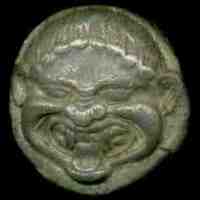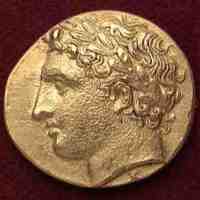
permission to use image granted

image courtesy of Edgar L. Owen, #3803
CLA 215 Mythology
Syllabus Fall 2015


CLA 215 Mythology
Syllabus Fall 2015
Dr. Victor A. Leuci
Leonard, Scott & Michael McClure. Myth and Knowing. Boston: McGraw Hill. 2004. Print
Powell, Barry. Classical Mythology. 8th Ed. Englewood Cliffs, NJ: Prentice Hall. 2014. Print (note: it is acceptable to use earlier editions edition of Powell's book)
The purpose of this course is 1) to introduce you to principal myths from Greece, Rome, northern Europe, India, China, the Near East, the Amerindians, and others, and 2) to explore the functions and patterns of myth in various ancient and modern cultures. An important goal of the course is to develop a critical perspective that will allow you to compare the myths of different groups of people and to perceive the way in which certain mythic patterns seem to be universal in scope and others to be culturally specific. In essence, everyone in the class should strive to become adept at listening to, reading, telling, and interpreting traditional tales.
(Tier II: Artistic Expression and Critical Appreciation Context-course in literature).
Mythology is a key backdrop to all Greco-Roman art and literature, as well as the literature, written and oral, of almost all cultures, so the material studied will, by definition, be representative of significant movements and periods, as well as key themes and figures. As stated in the Objectives above one goal of the course is to develop a critical perspective which will involve developing the student's ability to analyze and discuss the material using key terminology and a variety of approaches. Understanding a society's mythology is often essential in understanding that society and its concommittant culture since cultures often use myths as a key way of examining the human condition. Thus through this study of mythology, students will explore the relationship between art and society in order to gain insight into cultural aspects of society and develop a perspective that enhances understanding of the human condition. A study of mythology, with the importance of reading parts of significant works of literature and looking at how mythology was a key mover in the arts in general, cannot but help to promote an appreciation of the arts.
The course will consist of both lectures and discussion. More than two unexcused absences will be considered excessive, and no make-up work will be accepted for unexcused absences.
Plus/Minus: The grading scale is:
Exams: 4 total; 70 points each; your lowest score will be dropped.
Papers: 6 total; 30 points each; your lowest 2 scores will be dropped; 600-1000ish words in length. These may form an important part of class discussion. Extra option: count all 4 exam scores and 2 paper scores (i.e. dropping 4 papers but keeping all 4 exams).
Final: The final is exam 4 (see above).
Class Participation: 30 points. There may be posts in a class discussion folder in Moodle required for certain assignments. Posts or other types of assignments are required for all excused absences -- check Moodle for what will be required.
Workload: Since this is a 3 hour class, expect to spend 9 hours a week, on average, preparing for class, attending class, writing papers, and studying for exams. The exact amount per week will vary depending on what we are doing that week (see the worksheet in Moodle for more details).
All students and faculty must adhere to the Honor Code; please see the Student Life Handbook for the full description of the Honor Code--p. 21 in the Student Life Handbook gives a short definition: "No Westminster student shall commit any act of academic dishonesty in order to advance her or his own academic performance, or to impede or advance the academic progress of others," but the sections on plagiarism and cheating are especially important (see Honor Commission Constitution, Article IX).
check pdf in Moodle or the Student Life Handbook for the following: ADA/Equal Access Policy, Policy on Harassment and Discrimination, College Duty, Emergency Procedures.
Different types of writing will be part of the course: short papers and exams that are predominately essay. Six short papers will be assigned as a means to help participants come to a better understanding of important themes, ideas, and concepts. Several of the short papers will be revised based on a conference with me or with a tutor from the Writing Lab (see below for more details). A critique and conference after the completion of a paper may also occur. In general, participants in the class should highly consider using the services of the Writing Lab tutors, who can be of tremendous assistance.
Note: when turning in the final copy of a paper, the draft with comments by me and/or the writing lab tutor must be turned in at the same time -- it goes without saying that the "suggestions" noted on the draft must be incorporated in the final version of the paper for it to count as revised.
Option 2:
In-class version: The exams will be a combination of fill-in the blank and/or matching (20 pts) and one essay (50 pts). The essay must be well written in standard multiple paragraph format and replete with pertinent facts to support your thesis. The length for the essay should be 400-600 words --i.e. one to two full pages depending on how large you write, what type of margins you use, etc. -- but the key is an essay with a good thesis and good supporting facts. A review sheet will typically be available as an html file in Moodle and as a link from the syllabus one week before the exam as an aid in your preparation.
Take-home version: You may choose a take-home option on exams 3-4. This will involve writing either one 1200-1800 word essay or two 600-1000 word essays. The topics for these essays will be provided at the same time and places as the review sheet for the in-class exam.
Content: Each short paper will focus on a specific question based on your readings or possibly on a web site. The questions will typically be narrow in focus, and your paper should follow suite. The thesis you maintain in your paper should be supported with facts from the readings and from quotes where appropriate, both the facts and the quotes need in-text citations. Direct quotes should comprise no more than 20% of your total words.
Formatting::
Submission:: A paper copy is due at the beginning of the class period (failure to turn in a paper copy will result in a two letter grade deduction for that paper unless there are extenuating circumstances). An electronic copy of each paper is also required and should be submitted within 24 hours of the due date for the paper copy; note that there is a two letter grade deduction for failure to submit an electronic copy.
Regular attendance and participation are essential for the success of the whole class. More than two unexcused absences will be considered excessive, and no make-up work will be accepted for unexcused absences. Each unexcused absence past two will result in a deduction of 4 points from the total number of points one has at the end of the semester. If you are ill, e-mail me before class, if possible, or as soon as you are able.
The assignments given below are not "set-in-stone," and may vary depending on how each class period goes. The syllabus will be updated as needed.
Reading Assignments from:
Reading Assignments from: